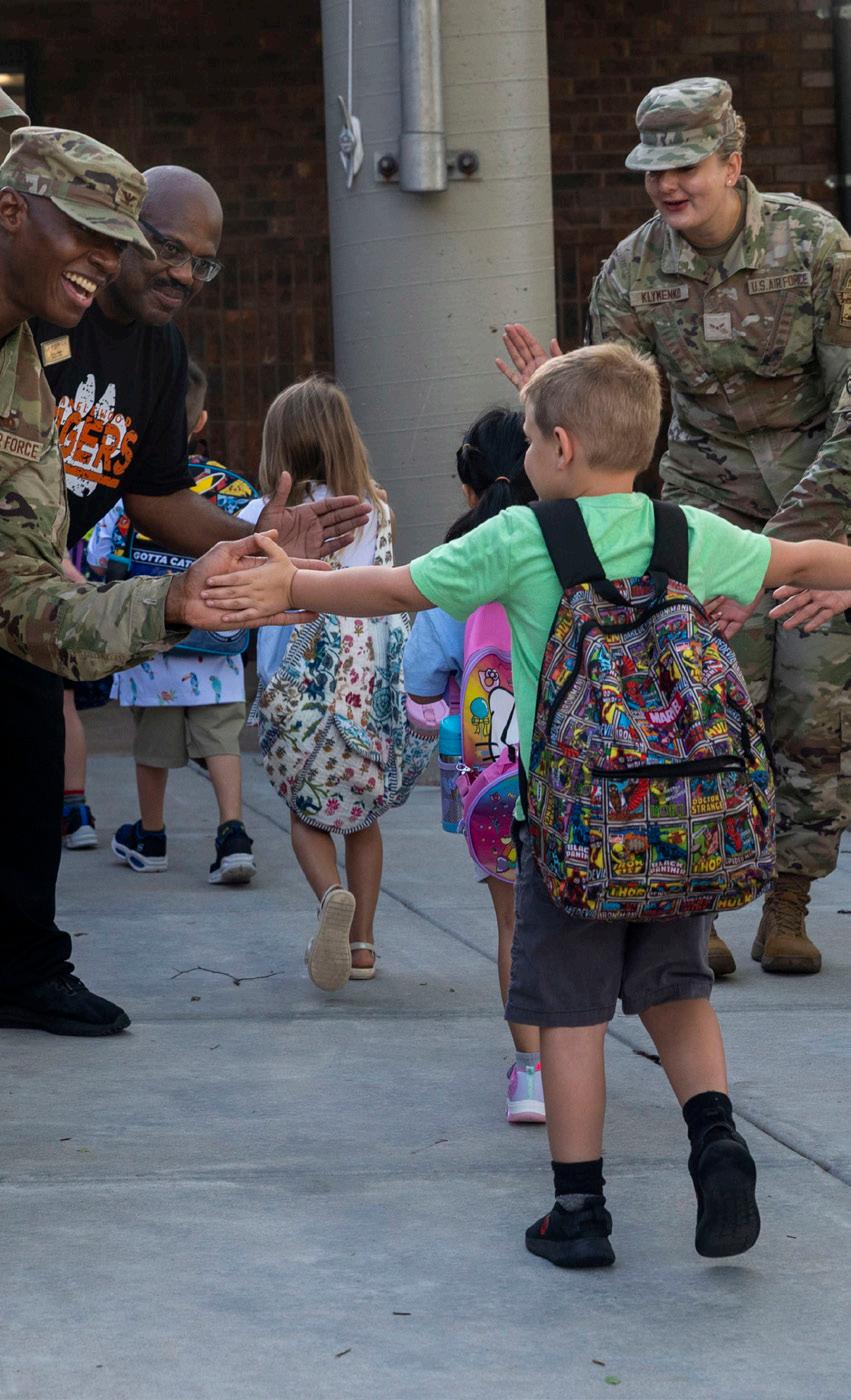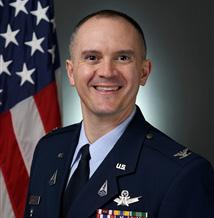
6 minute read
Carrying the Modern Military Family Confidently into the Future
Expert Insights
In our rapidly evolving military culture, connecting with colleagues and teammates is essential to learning their perspectives and insights on our shared mission for national defense.
Across the DAF we have leaders impacting our culture and carrying our Airmen, Guardians, and the modern military family confidently into the future with the balance of quality of life and family readiness at the forefront of their conversations.
Here’s what they shared with the ENGAGE team:

As a new military service, the USSF is uniquely positioned to create a cohesive culture of mission readiness that includes families at the most basic levels of involvement. As Col. Charlie Norsky, Commander of Delta 1, shared with our ENGAGE team, “The USSF has the opportunity to take in feedback from all echelons, especially from our newest Space Force spouses in the discussion of how to best serve our Space Force families.”
By leveraging existing initiatives like the Commander’s Key Support Liaison Program, the leaner USSF, “can take inputs from the unit level and report up the chain and provide game-changing feedback to improve the quality of life for our families.” Norsky continues on the essential role families have in building mission readiness.
“We cannot overemphasize the importance of making that initial connection with our families. Through efforts like the USSF Family Pinning ceremony at Basic Military Training Graduation, we are able to message to our families that from day one, they are part of this team!”

“Families are an integral part of the mission,” said Lt. Col. Sharon Arana, the Sword Athena Lead at Air Combat Command. To best support family readiness for the mission, Arana believes that we must prioritize “creating equitable conditions for our mission and our families.”
One of the key components to finding solutions that all stakeholders support is to continuously ask, “What are we doing to hold our communities accountable?”

K.C. Erredge has spent nearly 30 years in the Air Force community as a spouse on both the Active-duty and Reserve sides of service and currently is the Lead Key Spouse for the Air Reserve Personnel Center. As a Reserve family, she’s seen the difference in the military experience for Reserve spouses and children.
“A lot of them in traditional Reserve status might not consider themselves ‘military families’ because they don’t see it and they don’t really talk about it. They might not even have ID cards, they don’t know how to access the base, they don’t know that they can access any military installation for services if they needed.” She further explained that sometimes a Reserve spouse might not even know who to officially contact within the unit if there was an emergency with their service member.
This disconnect is especially concerning when we consider the role of family readiness for the great power competition. According to Erredge, military families should always be ready for crisis and know how to engage officially should an emergency arise.
She shared a few practical steps that all families, regardless of service status, can take to prepare for everyday crises as well as threats from adversaries:
1. Have up-to-date DEERS enrollment and ID card.
2. Know the official points of contact within their unit.
3. Contact installation legal services to prepare important documents that might be needed, like a power of attorney or wills.
4. Have important documents gathered and accessible (birth certificates, shot records, marriage certificates, divorce decrees, custody papers, school records, etc.)
5. Plan for anything important that goes with you for an evacuation or natural disaster.

Mrs. Gina Allvin, spouse of CSAF Gen. David W. Allvin, knows firsthand the importance of family readiness because she has seen how quickly a crisis can change the mission.
General and Mrs. Allvin were serving in squadron command on 9/11 and they remember the shock and fear felt around the country and how it was experienced differently within their unit based on the family readiness of each household. It’s shaped how she views family readiness ever since.
While everyone, both military and civilian, understands that it’s important to be prepared for unexpected contingencies, the need for military families to be ready to respond to unexpected events at any moment is heightened because of the unique requirements that come with military life.
She added, “While our off-base community partners are undoubtedly affected by many of the events that sometimes impact our bases, military families often shoulder an increased burden in moments of crisis, emergency, or conflict. It is vital that military families understand their service member’s mission so that they can adequately plan for contingencies that might affect their family with minimal notice.”
She continues that, “due to the inherent unpredictability of military life, where an event that happens across the world could trigger a no-notice tasking, military families are often impacted by these types of events on a more frequent basis. Additionally, while civilians may be able to have the same emergency contacts for years and years, military communities are generally more transient, with neighbors and coworkers moving regularly, which requires military families to constantly update their plans. These factors, combined with the fact that military families are often stationed away from locations where they can rely on family support, make it all the more important that the modern military family is well-prepared and practices good family readiness.”

One of the leading experts in the intricacies of military quality of life and mission success is Heba Abdelaal, former Congressional staffer and currently OCONUS Active-duty spouse.
For over a decade she has advocated for the stability of service members and their families to ensure mission readiness in all circumstances. According to Abdelaal, “Military families are the backbone of our all-volunteer force. Supporting the success of military families is not just a moral imperative; it’s a strategic necessity for the defense and security of our country.”
This article was written by Heather Campbell, a nationally recognized subject matter expert in food insecurity and quality of life within the military community. You can read Heather's full bio and the complete edition of United Forces & Families ENGAGE: Elevating Family Readiness here.







